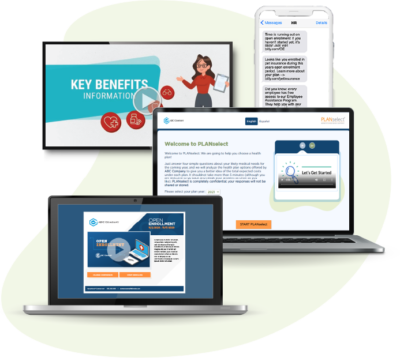 Millennial engagement and career fulfillment begins with the employer and ends with the employee. If a position does not offer an employee the favorable factor(s) of work and life balance, most millennials tend to look elsewhere.
Millennial engagement and career fulfillment begins with the employer and ends with the employee. If a position does not offer an employee the favorable factor(s) of work and life balance, most millennials tend to look elsewhere.
A 2016 Forbes article discusses a study done by Deloitte that states 16.8% of millennials value good work and life balance when deciding on a job. This study also states that 11% find flexibility with scheduling and workspaces important. Once the millennial prospect finds a job that offers a more progressive position that places importance on work/life balance, they are more likely to stay at that job past the typical one-year mark.
Yes, the dreaded one-year mark, the short period of time a millennial stays with a job before they get bored or just plain sick and tired and run off to a newer, more millennial-driven company, costing you $15,000 to $25,000 according to Beyond.com. It is up to the upper management and HR professionals to provide unique methods to emphasize work/life balance that makes sense for both parties. We millennials aren’t looking for frequent days off or over-the-top company outings, we just want to be understood.
So, here are some ways to improve your work/life balance approaches in your workplace to assist with millennial engagement.
Mental Health Days for Millennial Engagement
 Everyone, from time to time, needs a day off to reboot and avoid burnout. Millennial engagement is dependent on how employees are taking care of themselves and if you have an office full of overworked, overtired staff, work will not be done efficiently. After a certain time spent working at your company, give each employee a limit of mental health days per month. This will show employees that you care about their well-being and understand the struggles of everyday life.
Everyone, from time to time, needs a day off to reboot and avoid burnout. Millennial engagement is dependent on how employees are taking care of themselves and if you have an office full of overworked, overtired staff, work will not be done efficiently. After a certain time spent working at your company, give each employee a limit of mental health days per month. This will show employees that you care about their well-being and understand the struggles of everyday life.
Use ‘Flextime’ Scheduling
This option may not work for all workplaces but it is a great way to offer the flexibility millennials look for in a job. Whether you base workweeks on a total amount of hours per week or solely on project/work completion, you can make schedules less mundane and more conducive to millennial engagement. Let employees pick their hours; maybe they want to work a half day on Monday but will come in to work a 10-hour shift on Tuesday to make up for the hours lost. If it’s based on work completion, allow employees to change their work schedule based on how quickly they get the work done. These options will allow employees to not feel trapped in the normal 9 to 5 schedule.
Encourage the Work Smarter, Not Harder Mindset
Throw out time fillers, the busy work that wastes time and productivity. Prioritize important tasks and delegate as needed; this will put emphasis on the biggest projects so they are completed in a more efficient, creative way. When you focus more on innovation and less on small, not-so-important tasks, millennial engagement increases and their sense of importance in their role is heightened.
 Promote Health Options
Promote Health Options
Millennials tend to be more health- and fitness-focused than other generations. They typically use fitness as a way to control stress and stay physically healthy from the inside, out. When your company offers a complimentary gym membership or nutritional services, this makes our ears perk up! Even if only a discount is offered, millennials will take advantage of this feature especially if it is something they can use during and after work. Workplaces want their employees to be well and avoid taking too many sick days, so this option is a good way to keep their employees motivated and energized, lessening their chances of burning out or becoming ill.
Now you see, millennial engagement is not going to increase by offering longer vacations or sending us on long-winded company trips – it is all about what happens in the office. Remember that employees have other things going on outside of work and give mental health days. Try out flextime scheduling to see how millennial engagement changes. Give efficient rather than time-consuming tasks that aren’t priority. Focus on fitness and health to boost productivity and happiness in the workplace. All of these can create major change in your company culture and build withstanding relationships between employees and their higher-ups, thus keeping a strong, long-lasting team!




 Promote Health Options
Promote Health Options

